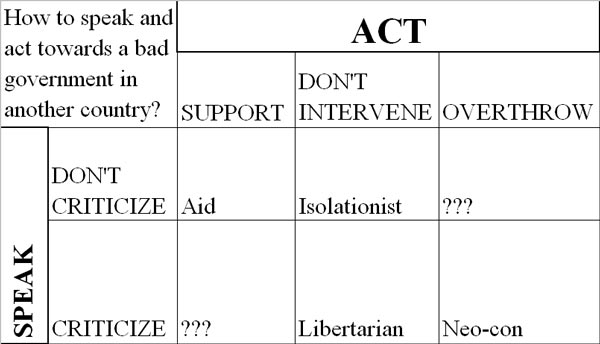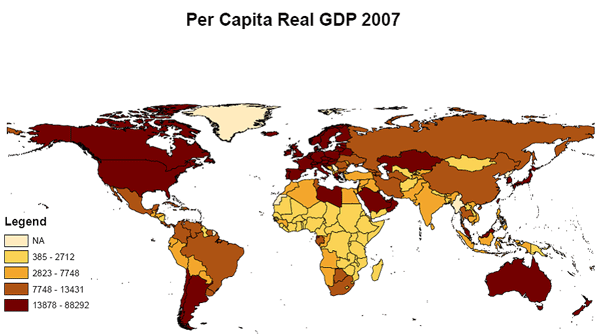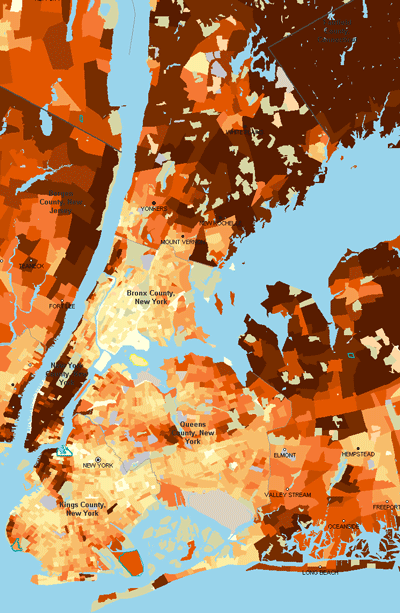FAO senior economist responds on “made-up world hunger numbers”
We received this comment this morning from David Dawe, senior economist at FAO, in response to Wednesday's post Spot the made-up world hunger numbers. Kudos for the prompt reply and the willingness to engage in discussion.
Dear Professor Easterly,
I am a leader of the technical team in FAO responsible for publication of the State of Food Insecurity in the World, which reports FAO’s estimates of undernourishment every year. I would like to clarify the methodology behind the recently reported estimates of undernourishment for 2005/07 and 2010. FAO attempts to measure the number of people in the entire population (i.e. of all ages) for whom caloric intake is below a threshold, what we call the minimum dietary energy requirement. This is a different way to measure hunger than the anthropometric estimates published in World Development Indicators, which measure the nutritional situation of children under 5 years of age.
There is no need to summarize FAO’s methodology here – a brief summary of it is publicly available here , as noted in the blog post by Richard King. A more detailed discussion (411 pages) of FAO’s methodology and related measurement issues can be found here, which reports the results of an international scientific symposium held in 2002 on the measurement and assessment of food deprivation and undernutrition. In addition, the data for reproducing FAO’s country estimates for 2005-07 are publicly available here.
As noted by Richard King in his blog post, lags in data collection prevent FAO from using this same method to construct undernourishment estimates for 2009 and 2010. Instead, we have to use models to get estimates for more recent years. Therefore, to get the number of undernourished people for 2009 and 2010, we applied estimates of percentage increases in undernourishment from the USDA Food Security Assessment model to our own estimates of the level in the previous year. A short summary of the USDA model was provided on pages 22-26 in the State of Food Insecurity 2009. A longer publication (from USDA) that describes the model in more detail and its estimates is also available. Referring again to Richard King’s blog post, he provides an excellent summary of the shortcomings of applying the USDA model to our own estimates, so there is no need to repeat them here. In addition, note that our model-based estimates do not take into account the floods in Pakistan or recent increases in wheat and maize prices on world markets.
As with any methodology for constructing global estimates of socioeconomic variables, it is subject to many valid criticisms, and some of these criticisms are available in the published literature (e.g. Peter Svedberg, 1999, 841 million undernourished?, World Development 27 (12): 2081-98). Some of the criticisms suggest that FAO overestimates the extent of under-nutrition, while others suggest that our estimates are too low. A recent World Bank Working Paper provides estimates of the impact of the crisis that are roughly similar to ours (Sailesh Tiwari and Hassan Zaman, 2010, The impact of economic shocks on undernourishment, World Bank Policy Research Working Paper 5215). Whatever the estimate may be, FAO welcomes such criticisms and alternate methodologies so that the world has a better quantitative understanding of the extent of this problem.
While we stand by our current estimates, we also recognize that improvements to our methodology are possible. Thus, FAO is currently investing financial and human resources to improve our estimates of the number of undernourished people in the world. Constructive contributions to this effort are welcome.
I am happy that you have brought these issues to the attention of your many readers, because it focuses attention on the problem of hunger and will help us to improve the quality of our estimates. In that regard, we encourage you and all those who are reading this blog to sign the online petition at 1billionhungry.org to help put pressure on politicians to end hunger. In addition, I will invite you to present a seminar at FAO so that we can benefit from your insights on this issue.
Sincerely,
David Dawe
 From Aid to Equality
From Aid to Equality















